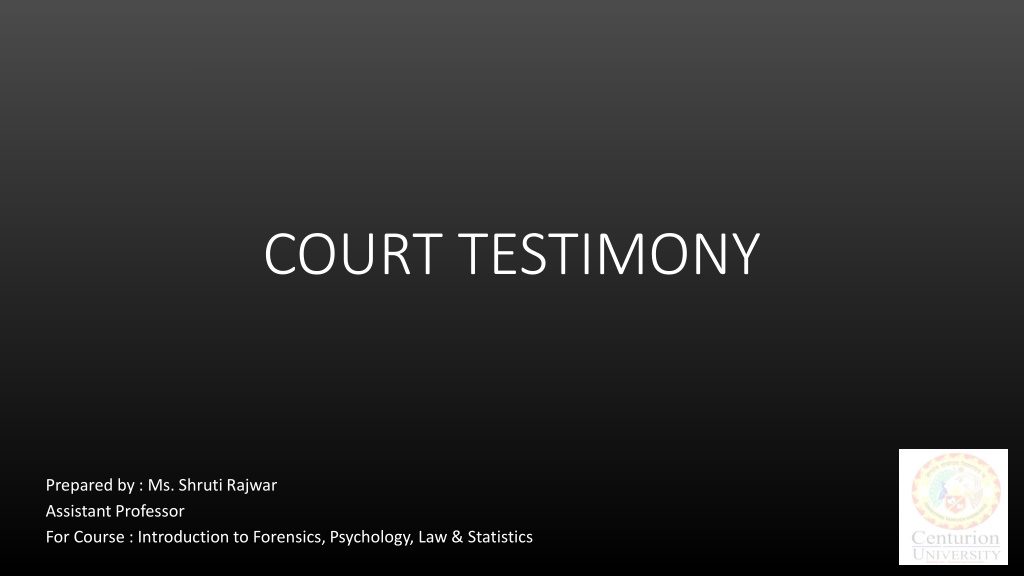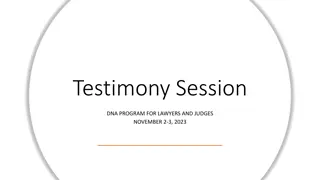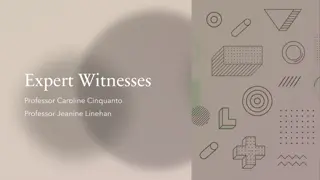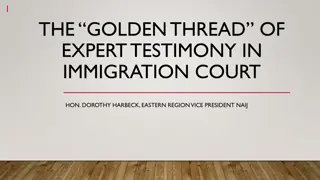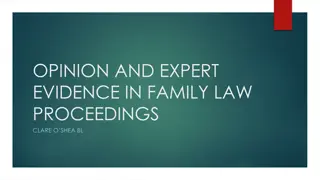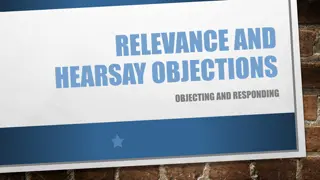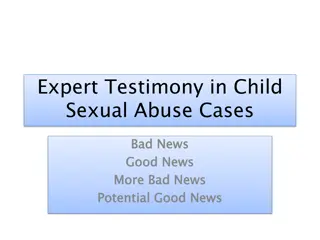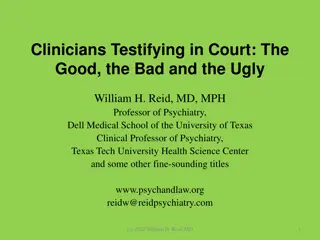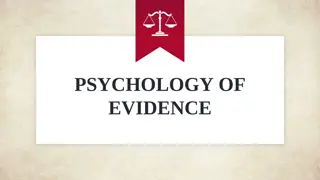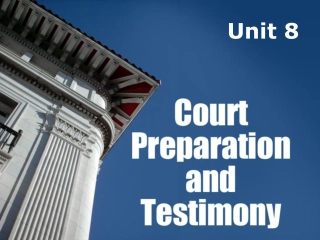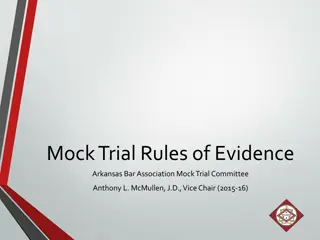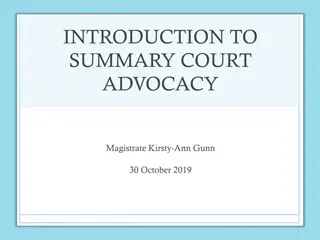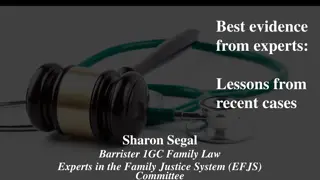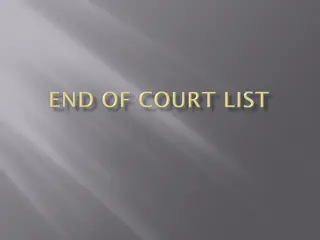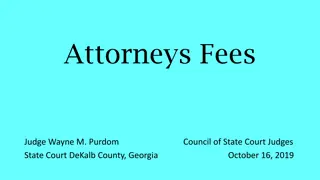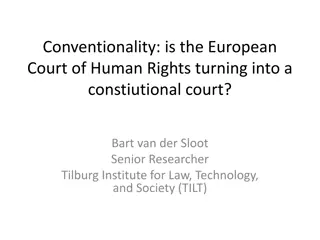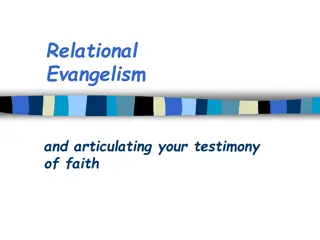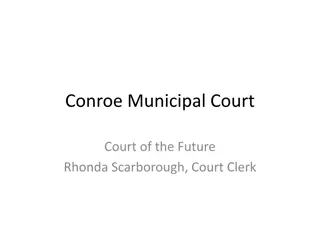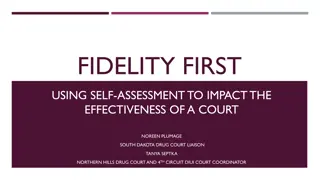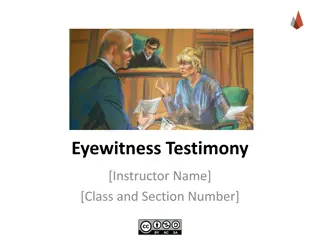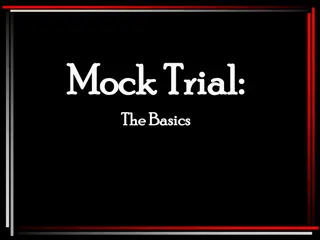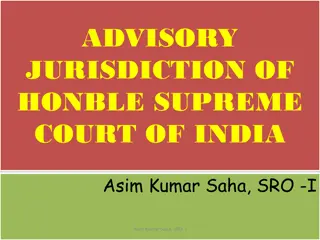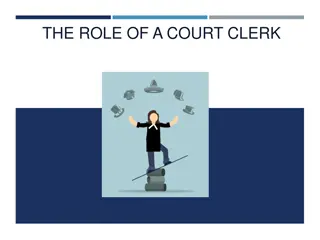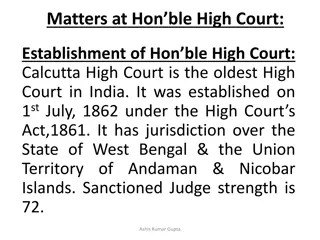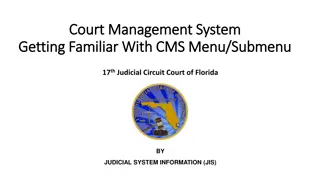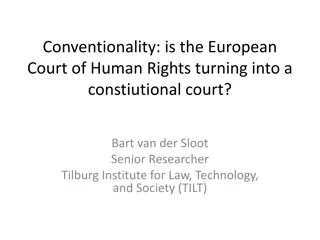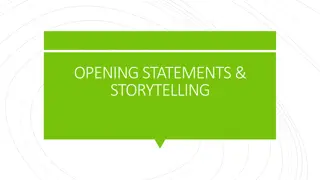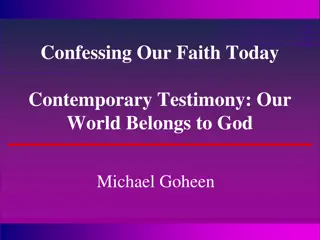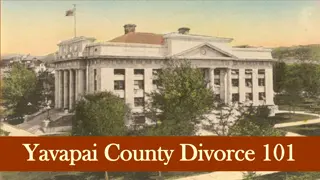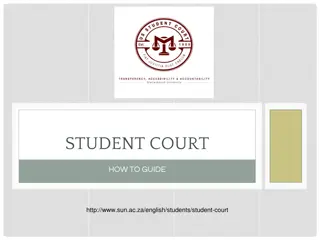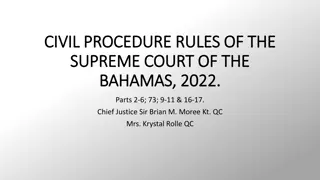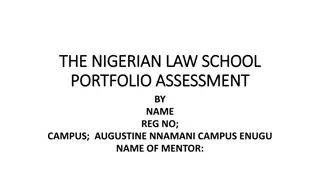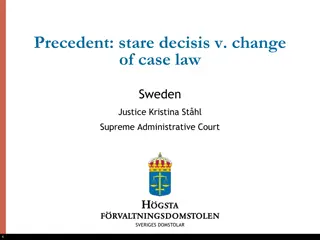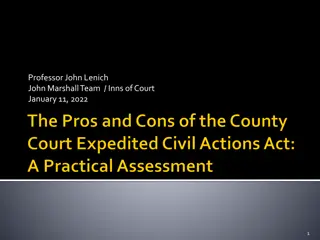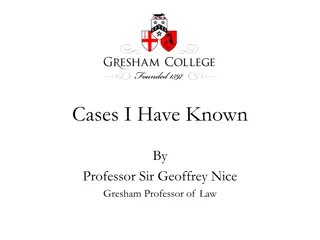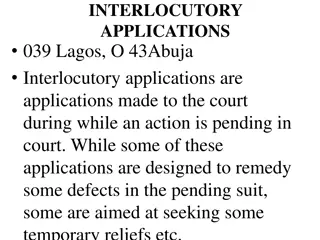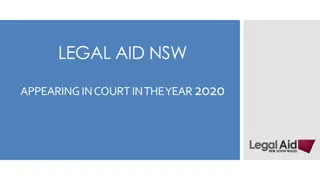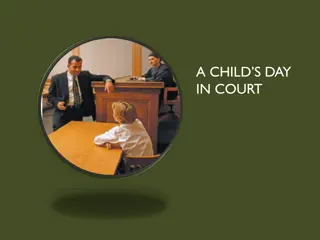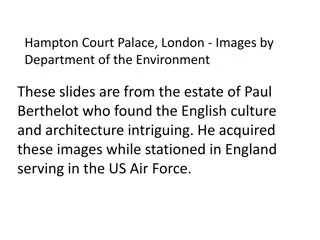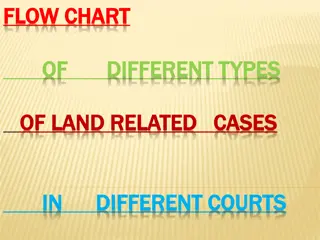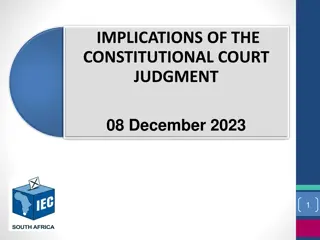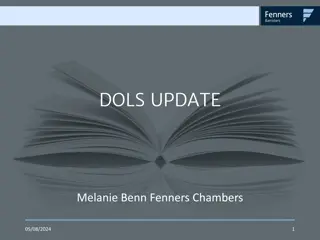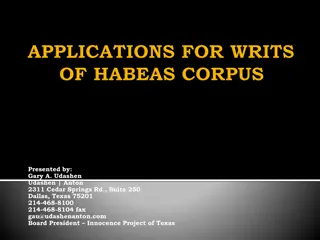Understanding Expert Testimony and Procedures in Court
This document discusses the importance of expert testimony in court proceedings, covering topics such as admissibility, procedures for forwarding exhibits to experts, court preparation, examination processes, and ethics in forensic science. It emphasizes the need for experts to testify, the formalities involved in sending exhibits, and the specific legal provisions governing expert opinions in Indian courts.
Download Presentation

Please find below an Image/Link to download the presentation.
The content on the website is provided AS IS for your information and personal use only. It may not be sold, licensed, or shared on other websites without obtaining consent from the author. Download presentation by click this link. If you encounter any issues during the download, it is possible that the publisher has removed the file from their server.
E N D
Presentation Transcript
COURT TESTIMONY Prepared by : Ms. Shruti Rajwar Assistant Professor For Course : Introduction to Forensics, Psychology, Law & Statistics 1
Topics to be covered- o Expert Testimony o Admissibility Of Expert Testimony o Procedure of forwarding exhibits to experts o Pre Court Preparation And Court Appearance o Examination In Chief o Cross Examination o Re- Examination o Ethics In Forensic Science 2
Expert Testimony Testimony about a scientific, technical, or professional issue given by a person qualified to testify because of familiarity with the subject or special training in the field. Expert evidence in Indian courts is admissible under Section 45 of the Indian Evidence Act, 1872 Sec.46:- Facts bearing upon the opinion of experts : Facts not otherwise relevant, are relevant if they support or are inconsistent with the opinion of experts, when such opinions are relevant. 3
Procedure of forwarding exhibits to experts When forwarding the exhibits to the experts certain procedure and formalities must be followed by the I.O. to dispatch packed exhibits or physical evidence to experts. It ensures identity and continuity and above all question of integrity of such exhibits. The I.O. shall follow the following procedure for forwarding the exhibits to the experts:- Exhibits are sent to experts through the concerned court. A forwarding report shall be prepared by the I.O. in the prescribed format where available. A certificate from the competent authority concern (C.M.M./C.J.M./A.C.J.M. as the case may be) has to be received in the line that Certified that the Director, Forensic Science Laboratory, has the authority to examine the exhibits sent to him in connection with the case of State vs. ..(name of the accused) U/s- (provision of I.P.C. or any other law) and if necessary, to make them to pieces or remove portions for the purpose of the said examination. The same seal (wax) shall be used by the I.O. on the forwarding report as affixed on the forwarding exhibits. The specimen seal shall be on sealing wax and not in the ink. A copy of label (carbon copy) of each exhibit shall accompany the report. The forwarding report shall be prepared in quadruplicate (two for expert, one for case diary and one for the court s record) and shall be sent to the expert separately in a sealed cover. The exhibit should always be sent to the expert through police messenger. The IO. should make specific question that may establish the links between crime, victim and criminals. The questions should be formulated with some objectivity towards establishing such links between one another. 4
Admissibility of Expert opinion becomes admissible only when the expert is examined as a witness in the court. The report of an expert is not admissible unless the expert gives reasons for forming the opinion and his evidence is tested by cross- examination by the adverse party. In order to curtail the delay and expenses involved in securing assistance of experts, the law has dispensed with examination of some scientific experts. For example, Sec.293 Cr.P.C. provides a list of some Govt. Scientific Experts as following:- Any Chemical Examiner / Asstt. Chemical examiner to the Govt. The Chief Controller of explosives The Director of Fingerprint Bureau The Director of Haffkein Institute, Bombay The Director, Dy. Director or Asstt. Director of Central and State Forensic Science Laboratory. The Serologist to the Govt. Any other Govt. Scientific Experts specified by notification of the Central Govt. The report of any of the above Govt. Scientific Experts is admissible in evidence in any inquiry, trial or other proceeding and the court may, if it thinks fit, summon and examine any of these experts. But his personal appearance in the court for examination as witnesses may be exempted unless the court expressly directs him to appear personally. He may depute any responsible officer to attend the court who is working with him and conversant with the facts of the case and can depose in the court satisfactorily on his behalf. 5
Format for forwarding the physical evidence to C.F.S.L/F.S.L.:- Forwarding note Case No.:- State vs. .(name of the accused) Under section Nature of crime:-- . (this should cover nature of the charge, brief history and relevant details) List of exhibits sent for examination:-- . (exact place from where the exhibits were collected) Nature of examination required:-- .. (including any information which will assist the examination) Particulars of person in custody, if any :-- . . Signature of the Investigating Officer Specimen seal impression Memo No Forwarded to the Director, Central Forensic Science Laboratory/State Forensic Science Laboratory at . .. Signature & designation of the forwarding officer 6
Examination of Witness Witnesses are required to answer the relevant questions presented to them. A question asked to a witness must be relevant to a fact in issue, and must help establish the same. Their answers when recorded are called testimonies of witnesses. This questioning of the witness and recording their answers is called witness examination. 7
Examination-in-chief Section 137 in The Indian Evidence Act, 1872 The examination of a witness by the party who calls him shall be called his examination-in-chief. if no relevant facts are answered by the witness or there is no credibility to his statements, his testimony can be rejected and there is no need for cross-examination in that case. 8
Cross-examination The examination of a witness by the adverse party shall be called his cross- examination. The opposite party may ask him any question regarding all the relevant facts and not merely the facts discussed during the examination-in-chief. The scope of cross-examination is checking or discrediting the witness's testimony, knowledge, or credibility. Cross-examination complements the witness statement with information that has not been provided, allows to amend vagueness or falsehood in the declaration, to check facts are set in their proper contexts, and to reveal contradictions. Cross-examination has a persuasive function, giving counsel a chance, through the choice of questions, to focus the arbitral tribunal's attention on relevant issues of the case, as well as to events or key evidence to support that party's case. 9
Re-examination The examination of a witness, subsequent to the cross-examination by the party who called him, shall be called his re-examination. re-examination must be directed by the Court for explaining matters referred to in cross-examination (section 138) if any new fact or issue arises during re-examination, the opposite party can further cross-examine the witness on that fact or issue (section 138). 10
Leading Questions While examining, cross-examining, or re-examining a witness, the parties must refrain from asking leading questions. Leading questions have been described in Section 141 of the Act as- any question that suggests the answer which the person questioning expects to receive. Even though asking leading questions is prohibited by Section 141 as it feeds the witness with responses and must be objected by the opposite party when asked to a witness. However, Section 142 says that leading questions can be asked in an examination-in-chief, or in a re-examination if the Court permits The section further states that leading questions can be permitted by the Court in cases where the facts are introductory or undisputed or those in the opinion of the Court have already been sufficiently proved. 11
